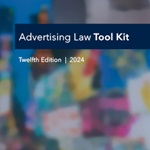FCC Fines Major Wireless Carriers $200 Million for Sharing Customer Geolocation Data
Early this week, the Federal Communications Commission (FCC) announced it had fined the largest U.S. wireless carriers for sharing access to customers' geolocation information without consent and without taking reasonable measures to protect against unauthorized disclosure. These Forfeiture Orders follow the issuance of Notices of Apparent Liability for Forfeiture and Admonishment by former Chairman Ajit Pai in 2020, and subsequent agency investigation by the agency's Privacy and Data Protection Task Force.
FTC Strikes Down Noncompete Agreements
On April 23, 2024, the Federal Trade Commission (FTC) greenlit a sweeping prohibition on the use of noncompete agreements by for-profit employers nationwide. In a party-line vote, the FTC voted 3–2 to approve a final rule that bans the use of most noncompete agreements with employees. The FTC's two Republican Commissioners voted against the final rule, primarily on grounds that they believe the rule exceeds the FTC's congressional authorization and therefore will likely not survive legal challenge. Although the rule is set to take effect 120 days after its publication in the Federal Register—which will likely occur within several days—the rule is expected to face significant court challenges concerning the FTC's rulemaking authority as well as the legality of the rule itself. Even if unsuccessful, such legal challenges could potentially delay the rule's effective date. As such, the effective date of the rule is uncertain at best.
Event in Review: Why Can They Say That, but I Can't? How to Challenge Your Competitors' Advertising While Avoiding Being Targeted
Losing market share to a competitor touting its superiority makes your job harder and is frustrating, particularly when those claims are unsubstantiated or deceptive. You may want to counter your competitor's claims with comparative advertising of your own or take legal action to make them stop. Before taking action, a company should carefully weigh its options, because the risks may outweigh the benefits, explained partners Shahin Rothermel, Claudia Lewis, and Ari Rothman in a recent webinar.
Telemarketing and Texting: An Excerpt from the Advertising Law Tool Kit
 Telephone and text message marketing poses private litigation risks and regulatory hurdles that should be considered before any campaign. The Federal Trade Commission (FTC), the Federal Communications Commission (FCC), and states enforce do-not-call (DNC) laws and impose multiple other requirements regarding calling manner, disclosures, consent, opt-out, calling hour limits, caller identification, and telemarketer registration. Calls and texts made to cell phones, using certain types of dialing technology (including autodialers) and prerecorded messages (so-called robocalls), require particular attention, as much of the enforcement and litigation in this area involve texting and robocalling.
Telephone and text message marketing poses private litigation risks and regulatory hurdles that should be considered before any campaign. The Federal Trade Commission (FTC), the Federal Communications Commission (FCC), and states enforce do-not-call (DNC) laws and impose multiple other requirements regarding calling manner, disclosures, consent, opt-out, calling hour limits, caller identification, and telemarketer registration. Calls and texts made to cell phones, using certain types of dialing technology (including autodialers) and prerecorded messages (so-called robocalls), require particular attention, as much of the enforcement and litigation in this area involve texting and robocalling.
Telemarketing Trial: Defendant Sweeps All Six Claims Against the FTC and Pennsylvania AG
It's not often we see defendants win a resounding victory against the Federal Trade Commission (FTC) and/or state attorneys general, especially after trial. But a recent opinion out of the Eastern District of Pennsylvania provides us with just that. On March 29, 2024 the court issued a 55-page opinion following a 15-day bench trial on the FTC and Pennsylvania attorney general's claims against American Future Systems, Inc. and its two co-defendants, finding in favor of the defendants on all six counts.